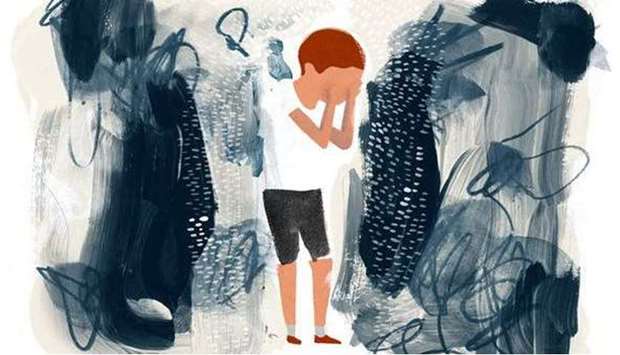We often hear people around us complaining and complaining that the ‘ghost of the past’ is haunting them, preventing them from moving forward in their lives and from enjoying their present and the immediate moments they are experiencing, and the truth is that they are not wrong in their claims.
Every day that passes in our life is the fruit of what we carry on our shoulders from past experiences that may stand in the way between us and ourselves, and no matter how much we try to get rid of our past and our memories, the impact of the experiences we have gone through will continue to accompany us, determining who we are today and who we will be in the future.
Hence, we must turn to the past in order to ensure the healing of the emotional wounds that we thought for a while that time is capable of healing them, before we discover the fact that they do not heal easily, but rather leave scars that are sometimes visible and deep.
The emotional wounds associated with autonomy appear in situations where someone is very in control of you and uses that power arbitrarily, which does a lot of damage to the personal sense of independence.
These wounds come from various actions and behaviours that try to restrict your freedom and your ability to make decisions, such as constantly criticising and punishing you for reasons that are not clear, in addition to dealing with you in a humiliating manner and as incompetent and useless people.
These types of emotional wounds can make it difficult to take any initiative or prevent you from making decisions about certain things, leaving you either submissive to others or very rebellious for no apparent reason.
The most difficult emotional wounds are those associated with a lack of affection, that is, when someone is abandoned or emotionally rejected. Usually, some parents cause this type of wound while raising their children, and this may stem from emotional abuse in their childhood, which they repeat with their children without realising it.
In many cases, wounds related to a lack of emotion can lead to feelings of intense loneliness, especially in moments of weakness, which makes a person think that no one thinks that he is important, and it gives him the idea that no one understands or accepts him.
These wounds resulting from lack of affection can have dire consequences for anyone who suffers from them. Sometimes a person becomes very dependent on others, which creates a constant need to obtain approval from other parties, so he tries to please everyone all the time, and often forgets to pay attention to himself. Just as his mood becomes associated with other people's attitudes and moods.
This ‘sample’ of emotional wounds that we mentioned in the previous lines, can disrupt the course of your life, as it usually prevents you from growing and developing at least in one aspect of your personality, and therefore, it is very important that you pay attention to past experiences that have had a great impact. On your daily life, dwelling on the past will prompt you to think about exactly what happened and how it affected you.
These deep psychological wounds resulting from emotional deprivation may make a person engage in toxic and unhealthy relationships in the future, characterised by disparities in power and authority: “By the fact that a person relinquishes certain matters in order to obtain this love, the following will be lost from him and her.” Adding that this interconnected cycle, from childhood to adulthood, is characterised by the formation of unhealthy social relationships based on painful memories and bitter experiences that have not been dealt with in an appropriate manner, which makes a person vulnerable to emotional violence and to situations that pose a threat to his mental health.
Therefore we stress the need for a person to seek psychologists, in order to help him build healthy social relationships and better understand himself and his feelings.
In short, as much as we ignore our emotional wounds, this does not prevent them from leaving their imprint on our brain, our behavior, and even our choices.
The truth is that we often tend to ‘drag’ childhood traumas, or important emotional events that have had an impact on our lives, into adulthood, but if we cannot see and analyze what happened rationally, emotional wounds will be impossible to heal. In fact, these wounds will be impossible. It will remain open indefinitely, and the bleeding will continue regardless of trying to ignore it.
Thus it is important to find some way to save ourselves, even if it is in small and simple steps. For example, we can look at the sadness in us to see what its is trying to tell us or find a way to consume the energy that comes from our negative emotions without harming anyone, and we also need to try to give a moment of rest to our anxiety so that we can regain our normal pulse.
* The author is a consultant in Public Relations and Personality Types. Instagram: @Tipsbyhalahill

